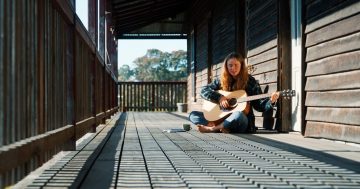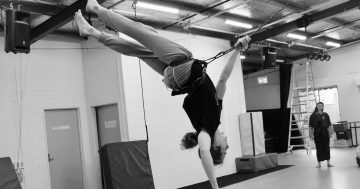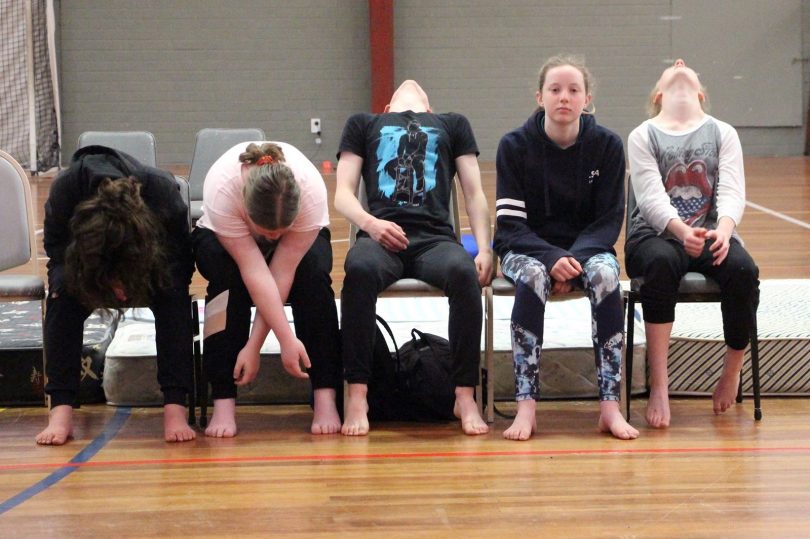
Students during a 2018/2019 development session with fLiNG Physical Theatre. Photos: Supplied.
This year, Bega Valley’s youth dance group fLiNG will tackle mental wellness, with plans for a new show to be performed in August this year, coupled with workshops on the same subject throughout Bega Valley High Schools beginning in Term two and continuing over a two-year period.
The show and workshops are together known as My Black Dog, and fLiNG artistic co-director Gabrielle Rose says that their aim is to reach as many regional students as possible and explore the links between physical and mental wellness.
“We’re not psychologists or mental health workers,” says Rose, “but we are working with local mental health workers from NSW Health and Headspace to find out what the mental health issues in our area are.”
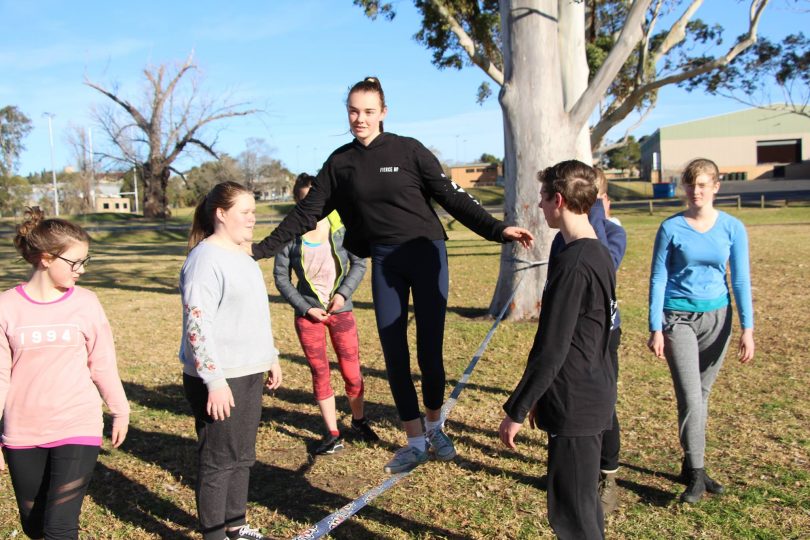
Overcoming physical challenges and growing trust are some of the skills students will learn through My Black Dog.
The fLiNG team have also undertaken a mental health first aid course in preparation for their work with My Black Dog.
Driven by their years of experience seeing teens “go to dance as a place to process,” Rose and the fLiNG team, with funding sourced from the Regional Arts Fund, The Mumbulla Foundation and Bega Rotary Club are keen to kick off this “ambitious project.”
“There are so many things that we want to touch on,” Rose says. “The stigma of mental illness, the fear of suicide – and we’re confident that the group will find ways to express themselves physically – everything from vulnerability to horror.”
fLiNG are not offering a solution to a big problem, Rose stresses, but providing a place to converse about mental illness and hopefully make it less taboo for teens to discuss mental health.
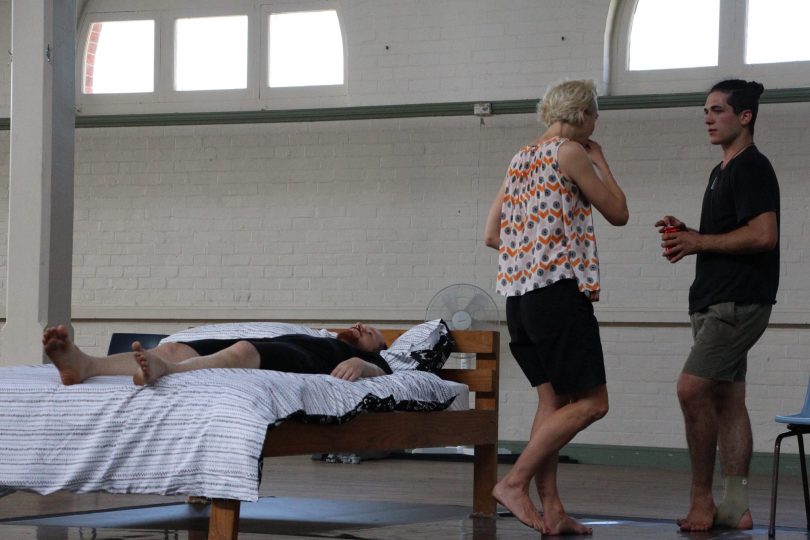
My Black Dog comprises a show, to be performed in August this year along with physical theatre workshops available regionally over a two year period.
The show, whose title is yet to be determined, will be produced in collaboration with Melbourne-based artist Kate Denborough, who has 25 years of experience as a performer, choreographer, and director along with fLiNG alumni Julien Comer-Kleine, who is currently studying at the VCA school of dance in Melbourne.
“We’re very excited about collaborating with Kate and Julian,” says Rose. “Kate’s work has always been driven by social justice issues and she has successfully tackled taboo subjects such as Alzheimer’s disease, youth detention and gender stereotypes in the past.”
Having input from recent school-leavers such as Comer-Kleine is important to the success of the company, Rose says.
“Working with Julian and others who have recently left high school brings greater depth to our discussions around mental health, living regionally, and what it’s like to leave this community and journey into life as an adult,” Rose explains.
It’s forming this bridge between youths and adults that make up much of fLiNG’s work.
“We’re really aware of the barriers that often exist between teenagers and adults,” Rose says.
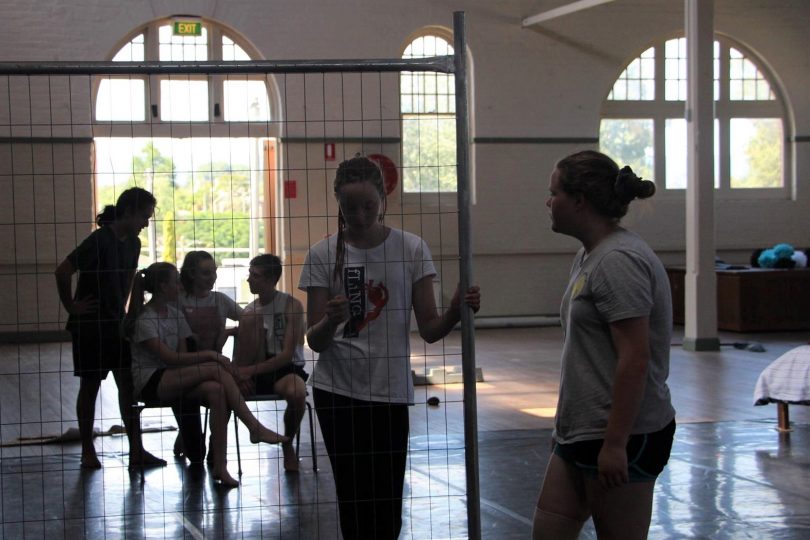
Breaking down social barriers provides a path to connection and wellness.
fLiNG’s dance development officer Gabriela Green says that dance and movement allow a different way to approach the struggles teens sometimes have including mental illness, suicide and the death of a loved one.
“You can’t dance without others, so things come up naturally in those interactions,” says Green. “In physical theatre, we have to work together to overcome challenges and students develop confidence and courage from trying new things.”
Green, who grew up in Sydney and began dancing at age three, says that “the thing that got me through school was dance.”
Rose agrees, pointing to the respite in “the slightly different social scene,” that her childhood dance group in Cootamundra provided.
As well as learning healthy physical expression, the workshops will cover some elements of self-care: “things like how do you manage stress? and how much sleep do you actually need? trying to make those connections between physical and emotional states,” says Rose.
The fLiNG team will be contacting schools soon about term two workshops and anyone between the ages of 12-24 is invited to visit http://www.flingphysicaltheatre.com.au/ to learn how to be a part of the upcoming My Black Dog project.







